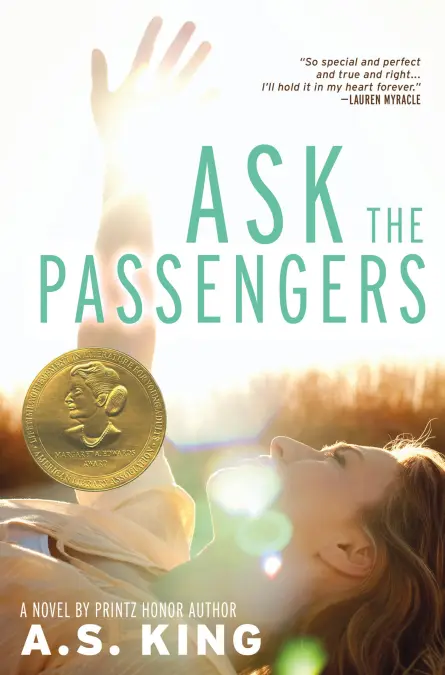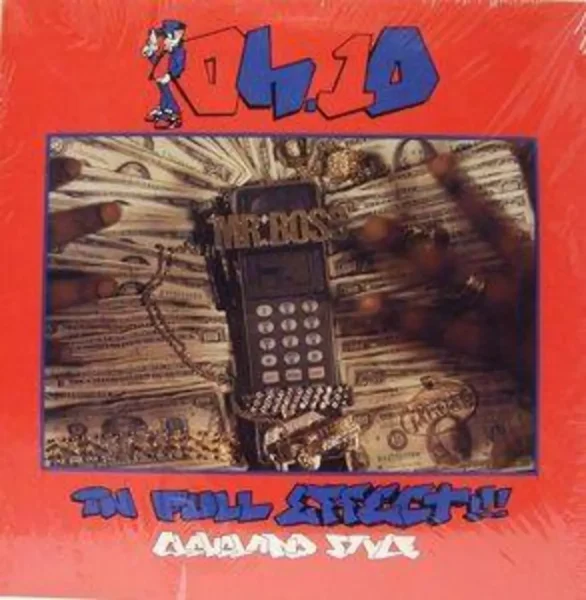Ask the Passengers: A Worthy Buildungsroman?
King’s coming of age story was something I could cling to as a middle schooler, but the book’s impact was greatly diminished as I matured.
To many people, A.S. King’s young adult novel Ask The Passengers is a heartwarming story of a teenager struggling to accept herself as a queer girl in small-town America. And in many ways, that is a true assessment.
Protagonist Astrid Jones lives with her popular, bigoted younger sister, her hypocritical, controlling mother and her lonely, stoner father. She feels isolated in provincial Unity Valley due to her upbringing in New York City and her secret girlfriend, Dee. Throughout the novel, Astrid struggles to understand her sexual orientation and figure out how to stand up for herself in her relationships with her popular but closeted friends, her pushy girlfriend, and her disconnected family.
I read Ask The Passengers for the first time when I was twelve and struggling with accepting myself in a modern Orthodox Jewish community. Astrid’s refusal to be put in a box and her difficulty in communicating what she wanted to say to her family and friends struck a chord with me. Her story made me feel heard, even though I was aware that my community was much more liberal than hers.
King hit on an emotional truth that gave me hope and reassurance as a middle schooler. Astrid is a compelling character, one who, like me, is more preoccupied with asking questions than finding answers. She embodies the feeling of being misunderstood and a little lost– a feeling that is nearly universal among preteens (and often teenagers as well).
However, as I re-read the book this year, I realized that other than the character of Astrid Jones herself and the emotional truth of her journey, Ask The Passengers lacks the maturity and nuance one hopes to find in a coming-of-age novel.
Ask The Passengers reflects a trap that some who try to advocate for social change and progressive values fall into: even though she claims through the character of Astrid not to, King creates a black-and-white world that alienates anyone with whom her entire message or approach does not resound.
Right off the bat, King creates a town that is single-mindedly anti-gay to an unrealistic extent, contributing to the “us and them” mentality that she stokes even as her main character denounces putting people in boxes. Astrid, the supposed heroine, looks down on many of her classmates, who are written as so wrapped up in gossip and bigotry that they come off at best as stupid and at worst as hatred-spewing robots.
Other than Astrid’s family members and, toward the end of the book, Astrid’s girlfriend Dee, the characters in Ask The Passangers are flat and unsympathetic. The book is written so that it appears that Astrid is the only person in her entire town who regularly has intelligent thoughts.
Ask The Passengers reflects a trap that some who try to advocate for social change and progressive values fall into: even though she claims through the character of Astrid not to, King creates a black-and-white world that alienates anyone with whom her entire message or approach does not resound.
Anyone who is not where Astrid is ideologically is simply less advanced than she is, intellectually and emotionally. King is willing to grossly simplify or even misrepresent complex historical events and social phenomena in order to get her points across, which is most obvious in a scene in history class where Astrid’s questioning of her sexuality starts with the pink triangles that homosexuals had to wear during the Holocaust.
A.S. King essentially downplays the fact that the Holocaust was primarily a genocide against the Jews and Roma and instead hones in on the fact that homosexuals were also targeted. She “spins” a mass genocide, then proceeds to never mention Jews in the book again when bigotry or the Holocaust are brought up. In doing so, she diminishes the true horror of the Holocaust and the intergenerational trauma it inflicts on its victims.
Ultimately, while Ask The Passengers beautifully portrays the emotions that a queer teenager in a conservative town experiences, the novel lacks nuance and thoughtfullness in most other areas. King’s coming of age story was something I could cling to as a middle schooler, but the book’s impact was greatly diminished as I matured.
















![Jonah [Eli Boskey] is a math teacher and recovering gambling addict who is persuaded to enter a high-stakes game of yaniv with Bernstein [Ben Ducoff].](https://bcomber.org/wp-content/uploads/2024/01/Screen-Shot-2024-01-11-at-3.17.55-PM-1-600x359.png)

